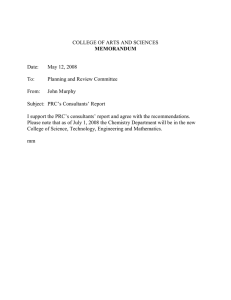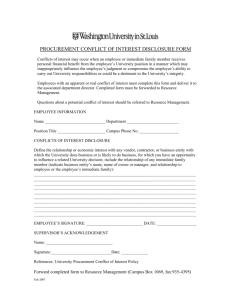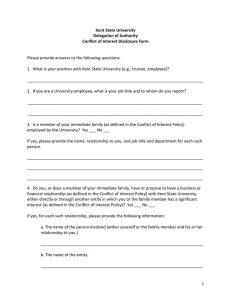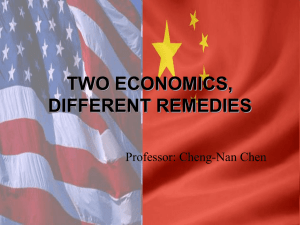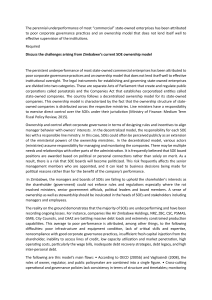CL27.doc
advertisement
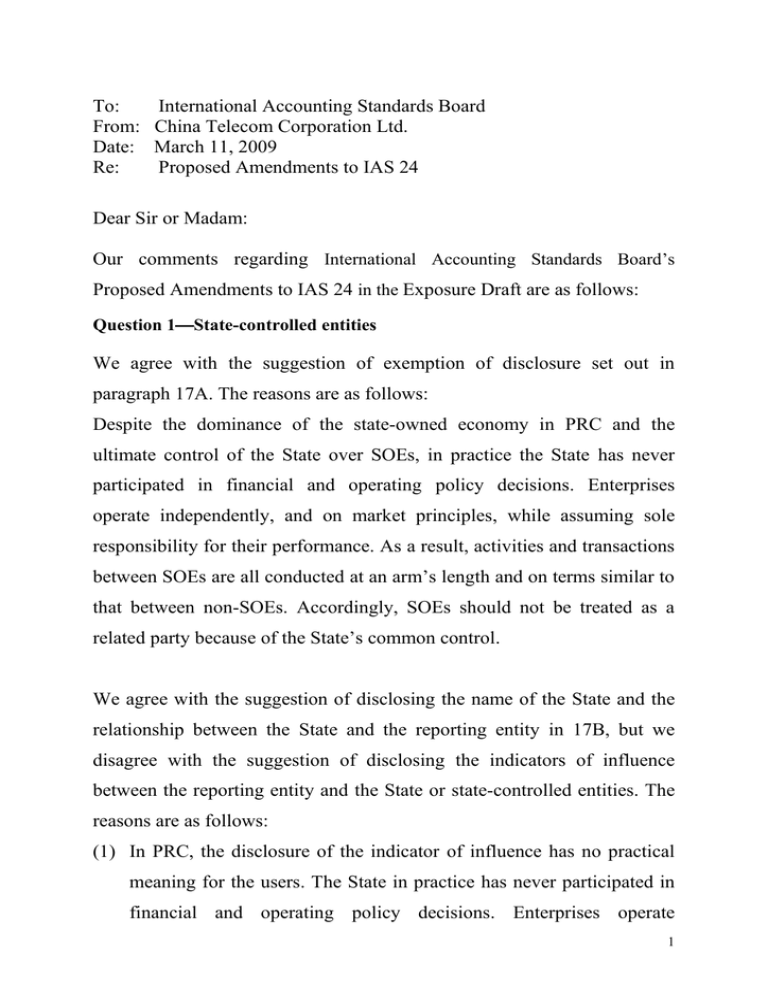
To: From: Date: Re: International Accounting Standards Board China Telecom Corporation Ltd. March 11, 2009 Proposed Amendments to IAS 24 Dear Sir or Madam: Our comments regarding International Accounting Standards Board’s Proposed Amendments to IAS 24 in the Exposure Draft are as follows: Question 1—State-controlled entities We agree with the suggestion of exemption of disclosure set out in paragraph 17A. The reasons are as follows: Despite the dominance of the state-owned economy in PRC and the ultimate control of the State over SOEs, in practice the State has never participated in financial and operating policy decisions. Enterprises operate independently, and on market principles, while assuming sole responsibility for their performance. As a result, activities and transactions between SOEs are all conducted at an arm’s length and on terms similar to that between non-SOEs. Accordingly, SOEs should not be treated as a related party because of the State’s common control. We agree with the suggestion of disclosing the name of the State and the relationship between the State and the reporting entity in 17B, but we disagree with the suggestion of disclosing the indicators of influence between the reporting entity and the State or state-controlled entities. The reasons are as follows: (1) In PRC, the disclosure of the indicator of influence has no practical meaning for the users. The State in practice has never participated in financial and operating policy decisions. Enterprises operate 1 independently, and on market principles. As a result, activities and transactions between SOE’s and the State are all conducted at an arm’s length and on terms similar to that between non-SOEs. Since the transactions themselves are not influenced by the State, disclosure of the indicator of influence are irrelevant to investor’s decisions. (2) To disclose transactions between entities under common control of the State as related party transactions is not in line with the financial accounting conceptual framework’s principle of cost effectiveness. In the PRC, the state-owned economy continues to play a significant role, with a large number of SOEs still in operation. If transactions between entities under common control of the State were disclosed in strict compliance with IAS24, almost all our daily activities and expenses, such as equipment purchase, utilities, petrol expense, insurance and travel allowances, etc, would have to be recorded and classified as related party transactions, which would incur heavy costs. We also believe this information would not only prove to be irrelevant to investors’ decisions, but may also smother genuinely useful investment information. Our view is that this type of disclosure would not serve the basic principles of cost effectiveness, relevancy, and usefulness. (3) In the PRC, the telecommunications services market continues to grow, and China Telecom is a dominant player in China’s fixed-line and mobile market with a huge customer base. We do not have any effective means of identifying which customers are under State control, so in practice, these types of transactions could never be adequately and effectively disclosed. 2 Question 2—Definition of Related Party We disagree with example 2, 3, and 4 regarding the extension of the definition of related party. The reasons are as follows: (1) The new definition of related party extends the original definition in that not only two parties under common control are related parties, but where one party is under control and the other party is under significant influence of the same entity, the two parties are also related parties. As, investor cannot exercise operating decisions on entities where there is only significant influence, extension of the definition of related party will only increase the amount of related party information to be disclosed and in practice, greatly increase the cost of the disclosure. (2) If an entity is not under direct control, it is difficult to effectively obtain related party information; hence the information could never be comprehensively and effectively disclosed. We hope the IASB will take these comments into accounts. Sincerely, Wu Andi Executive Director, EVP and CFO China Telecom Corporation Limited 3

